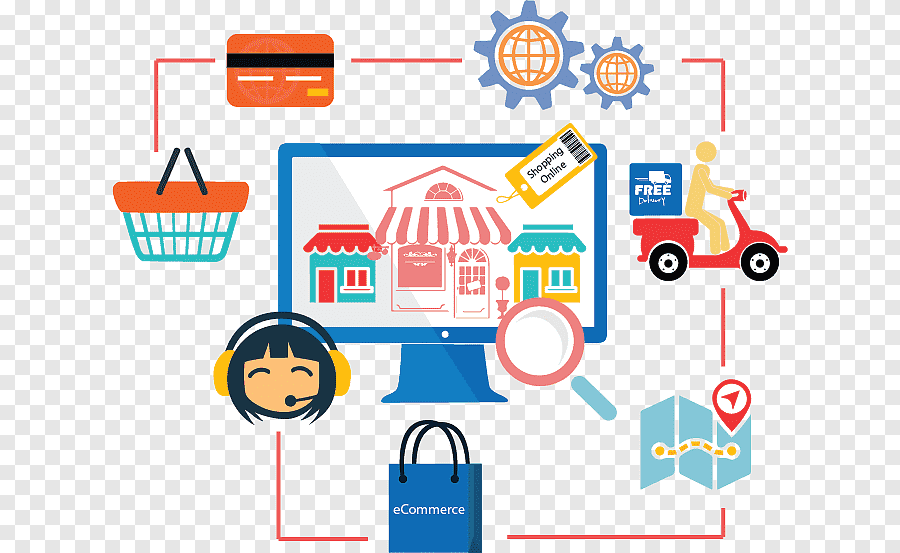5 Essential IT Solutions Every eCommerce Business Needs to Scale Faster
Are you tired of feeling like your eCommerce business is stuck in second gear while your competitors seem to be flying by? It’s frustrating, right? Scaling an online business isn’t just about having more products or customers—it’s about having the right technology in place to support your growth.
You might be thinking, “I already have a website and some basic tools, isn’t that enough?” Well, not quite. In today’s fast-paced digital world, the difference between growing and thriving often comes down to the IT solutions you implement.
In this post, we’ll explore five essential IT solutions that can help you overcome those pesky bottlenecks and set your business up for rapid, sustainable growth.
From advanced automation to seamless integration, these tools are designed to save you time, money, and headaches.
Stick with me, and by the end of this article, you’ll have a clear roadmap to scale your eCommerce business faster and more efficiently than ever before!
As your eCommerce business grows, so do the complexities that come with it. Managing a small online store is one thing, but scaling up to handle larger customer volumes, expanded product lines, and diverse operational needs requires a robust technological foundation. The right IT solutions can be the key to unlocking your business’s growth potential while also safeguarding its operations.
In this article, we’ll explore five essential IT solutions that every eCommerce business must implement to scale faster, operate efficiently, and meet the demands of an ever-growing market.
1. Optimized eCommerce Platform
The Backbone of Your Online Store
Your eCommerce platform is more than just a place where your products are listed; it’s the entire foundation on which your business operates. As your store grows, you’ll quickly realize that the platform you started with may not have the capabilities to handle higher traffic, more SKUs, or the need for advanced features like multi-channel sales and inventory management.
An optimized eCommerce platform ensures that your store is built to scale from the ground up. Platforms like Shopify, WooCommerce, BigCommerce, and Magento are popular choices for their scalability, ease of use, and wide array of integrations. But choosing the right platform for your growing business means considering a few critical factors.
How to Choose the Right Platform for Growth
When choosing an eCommerce platform to scale, you need to prioritize:
- Scalability: Your platform should be able to handle high traffic volumes without crashing or slowing down.
- Flexibility: As your business grows, you may want to customize your platform’s functionality. Look for platforms with a large number of plug-ins and add-ons.
- Security: Cybersecurity is crucial when handling a large number of customers and transactions. Ensure your platform offers strong security features like encryption and compliance with regulations.
- Integration: A scalable platform must integrate seamlessly with your other tools, such as CRM, ERP, payment gateways, and marketing tools.
Case Study/Example:
Take the example of a small fashion boutique that initially launched on a basic platform like Wix. As sales grew and customer demand increased, the owner switched to Shopify, which allowed them to scale more efficiently, offer multiple payment options, and handle international shipping. Within months, the business had expanded into several new markets, thanks to the capabilities of a more robust platform.
2. Advanced Automation Tools
Why Automation Is the Key to Scaling Efficiently
As your eCommerce business scales, so do the number of orders, customer inquiries, and inventory management tasks. Manually handling these tasks is not only time-consuming but prone to human error. That’s where automation steps in as a game-changer.
Automation allows you to streamline repetitive tasks, freeing up your time to focus on more strategic activities like marketing, product development, and customer engagement. It’s not about replacing the human touch but enhancing your operational efficiency by delegating routine tasks to software solutions.
Best Automation Tools for eCommerce
There are several automation tools designed to address specific needs in an eCommerce business:
- Order Management: Tools like ShipStation and ShipBob automate the shipping process, from printing labels to tracking deliveries.
- Customer Support: Tools like Gorgias and Zendesk offer automated customer service responses, live chat, and ticketing systems that can handle inquiries quickly and accurately.
- Marketing Automation: HubSpot and Klaviyo allow you to automate your email marketing, SMS campaigns, and lead nurturing, ensuring that no opportunity is missed.
Bonus Recommendation: For seamless email marketing that integrates with your eCommerce operations, sign up for a free 30-day trial of ActiveCampaign Email Marketing. ActiveCampaign helps you automate personalized email sequences, making it easier to engage customers at every stage of their journey—without manual input.
By automating these tasks, you reduce the risk of errors and improve customer satisfaction through quicker response times and smoother processes.
Pro Tip:
While automation is critical, ensure that your customer experience remains personal. Consider hybrid automation solutions where simple tasks are automated but more complex inquiries still receive a human response.
3. Cloud-Based Solutions for Flexibility and Growth
Why Cloud Technology Is Non-Negotiable for Scaling
Imagine your business experiencing a surge in traffic during a holiday sale, and your server crashes. Not only are potential sales lost, but your customers may become frustrated, leaving you with a tarnished reputation. This is where cloud-based solutions shine.
Cloud technology allows your business to scale rapidly and securely without the need for heavy, upfront investments in physical infrastructure. With cloud services, your data is stored, processed, and managed on remote servers, meaning you can access resources as your business demands more—without needing to expand your in-house IT infrastructure.
Benefits of Cloud-Based Solutions:
- Data Accessibility: Cloud solutions allow you and your team to access data from anywhere, improving collaboration and flexibility, especially in a remote work environment.
- Scalability: Cloud platforms automatically adjust resources to meet demand, ensuring your site remains fast and responsive during peak traffic.
- Cost-Effectiveness: You only pay for the resources you use, reducing the cost of maintaining expensive physical servers.
- Security: Leading cloud providers invest heavily in cybersecurity, offering protection and compliance for your sensitive customer data.
Top Cloud-Based Tools for eCommerce
Here are some of the top cloud providers that offer scalable solutions:
- Amazon Web Services (AWS): One of the most robust platforms, providing scalable storage, hosting, and computing power to meet your needs.
- Google Cloud: Offers flexible, cloud-based hosting solutions with a focus on security and performance.
- Microsoft Azure: Known for its strong integrations with Microsoft products, Azure is a great option for businesses that rely heavily on tools like Office 365.
Bonus Recommendation: For businesses looking for highly reliable and scalable hosting solutions, check out Liquid Web Hosting. It’s designed to offer high-speed performance and uptime, perfect for scaling eCommerce operations.
Real-World Example:
An online furniture retailer switched to a cloud-hosted infrastructure before their Black Friday sale. Despite experiencing a fivefold increase in traffic, their site stayed fast, and customers were able to check out without issues, leading to a record-breaking sales day.
4. Robust Cybersecurity Solutions
The Importance of Cybersecurity as Your Business Grows
As your eCommerce business scales, so does the risk of cyberattacks. The more data you collect and transactions you process, the more attractive you become to hackers. A single security breach can not only result in financial losses but also damage your brand’s reputation.
Cybersecurity should be a top priority as your business grows. From protecting customer data to preventing fraud, robust security measures will ensure your eCommerce store remains a safe space for your customers to shop.
Must-Have Security Tools for eCommerce
When it comes to cybersecurity, the following tools are essential:
- SSL Certificates: An absolute must for encrypting sensitive customer information like credit card numbers and personal details. Most modern browsers will flag your site as “not secure” if you don’t have an SSL certificate.
- Two-Factor Authentication (2FA): Adds an extra layer of security for user logins, protecting both your business and your customers from unauthorized access.
- Anti-Fraud Tools: Solutions like Sift and Riskified help identify and prevent fraudulent transactions before they happen, ensuring that only legitimate orders are processed.
Security Tip:
Implement regular security audits and vulnerability testing. Whether you handle security in-house or outsource it to an IT provider, ongoing monitoring is critical to staying ahead of cyber threats.
5. Data Analytics and Reporting Tools
Why Data Is the Fuel for Rapid Growth
In today’s data-driven world, relying on gut instinct alone won’t cut it if you want to scale quickly. Data analytics tools provide you with a deep understanding of your customers, sales trends, and website performance, enabling you to make informed decisions that drive growth.
With the right analytics in place, you can track key performance indicators (KPIs) such as conversion rates, customer acquisition costs, and lifetime value—metrics that are crucial to scaling your business efficiently.
Best Analytics Tools for eCommerce
Here are some of the best data analytics tools for eCommerce businesses:
- Google Analytics: A must-have tool for tracking website performance, user behavior, and conversion rates.
- Kissmetrics: Specializes in tracking user behavior and customer journeys, helping you identify where users are dropping off.
- Hotjar: Provides heatmaps and session recordings, giving you insights into how customers interact with your site.
- Power BI: A business analytics tool that helps visualize complex data, making it easier to derive actionable insights.
Bonus Recommendation: For email marketing campaigns backed by data insights, sign up for ActiveCampaign’s free 30-day trial. This tool integrates seamlessly with most analytics platforms, allowing you to automate and analyze your marketing efforts to better target and convert your audience.
Actionable Insight:
Use data to refine your marketing efforts. By analyzing customer behavior, you can create personalized marketing campaigns that resonate with specific customer segments, ultimately driving higher conversions and customer retention.
Bonus: How to Seamlessly Integrate These IT Solutions into Your eCommerce Business
The Power of Integration for Smooth Operations
Having multiple IT solutions is great, but if they don’t work together seamlessly, you could end up with a disjointed system that causes more headaches than it solves. Integration is key to ensuring that your platform, automation tools, cloud services, cybersecurity measures, and analytics all work in harmony.
APIs and Middleware:
Application Programming Interfaces (APIs) and middleware tools like Zapier or Integromat can help sync data across platforms, allowing for smoother operations and data flow between systems.
**Quick Wins


